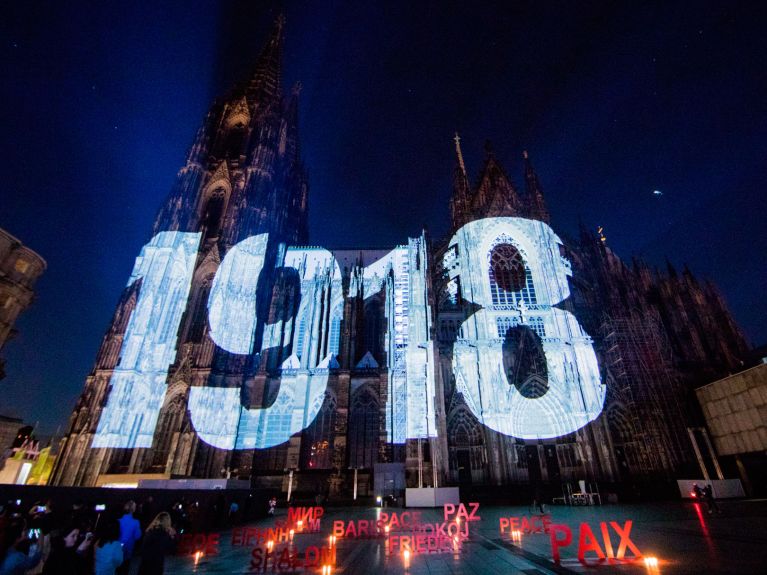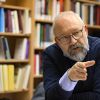Learning from 1918
100 years ago, the First World War ended. Facts and figures about the seminal catastrophe of the 20th century.

Why did World War I break out?
On June 28, 1914, the heir to the throne of Austria-Hungary was shot in Sarajevo. The assassination triggered diplomatic escalation and military momentum. Germany, which wanted to rise to the status of a world power, had a large and decisive responsibility for this. The chain of events led to the beginning of the First World War, in which Germany, Austria-Hungary, Bulgaria and the Ottoman Empire fought against almost all the other European states and later also the United States.
What distinguishes the First World War from the wars before it?
The First World War was the first industrial war in Europe, in which masses of people were annihilated by machine guns, tanks, planes, submarines, flame-throwers and poison gas.
How many victims were there?
Around nine million soldiers lost their lives. Never before had war in Europe claimed so many civilian casualties: their numbers are estimated at six million. In the summer of 1918 the defeat of Germany was inevitable. When the navy was due to set sail again in October, the sailors mutinied. This was the signal for the revolution, which reached Berlin on 9 November. On the same day the Republic was proclaimed and the German Kaiser Wilhelm II was forced to abdicate.

It’s about learning from 1918 what should be borne in mind in 2018.
What can be learned from 1918?
At an international conference in the Federal Foreign Office on 11 and 12 October 2018, renowned international representatives from scholarship, politics and the media will discuss the end of the First World War, its consequences and its significance for the present. They will span a wide range from historical observation to the discussion of current conflicts and possible peace solutions. Oliver Janz, Professor of Modern History at the Free University of Berlin and project leader of the conference, says: “The key questions that structure this conference spring from present concerns. It’s about learning from 1918 what should be borne in mind in 2018.”
What do diverging narratives mean for today's political issues?
Which lines of development extend from the immediate post-war period into our present? What current problems and crises go back to this time? “Everything indicates that the memory of the First World War and its end 100 years ago runs along very different national paths”, says Janz. In Germany, the defeat and the Treaty of Versailles are seen as further milestones on the way to the disaster of National Socialism, notes the historian. “In other states, it is above all the victory won by heroic sacrifices in a legitimate war for justice and freedom that is commemorated; and in yet other countries it is especially the attainment of national independence and the wars after the war that led to them.” What do these divergent narratives mean for today’s political issues, what are the points of contact and interfaces which, while taking into account all the different national experiences, nevertheless allow a joint learning process?
